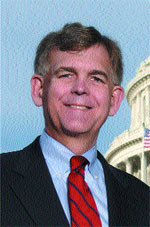US, China should build up constructive relations
Updated: 2007-11-15 11:14
The US Treasury Department's envoy for China and Strategic Economic Dialogue (SED) Alan Holmer said Wednesday that the United States and China should build up a cooperative, constructive and candid relations, noting that direct dialogues can keep the bilateral relationship on an even level by lessening miscommunication and dispelling misperceptions.
According to Holmer, he is visiting China for preparations for the upcoming US-China SED to be held in mid December in Beijing. The SED would specifically focus on trade integrity, balanced economic development, energy conservation, financial sector reform, environmental sustainability, and advancing bilateral investment. Product safety would be a new topic for the two countries this year.
Holmer, appointed as the envoy in February this year, has conducted visit to many parts of China, including Beijing, Shanghai, Shenyang, Qinghai, Xi'an, Chengdu, Guangzhou, Shenzhen and Hong Kong as well as some rural areas.
"I am deeply impressed with China's dynamism, creativity and diversity", and the visits helped him to "see the depths of the challenges you face in promoting balanced, harmonious growth", said Holmer.
Holmer said the US-China economic relationship is entering a new phase, since the bilateral economic interdependence is deepening, the trade and investment are now increasingly a source of tension and the tension is straining the domestic consensus in both countries on the benefits of economic engagement, and the economic protectionism is on a rise, adding that it requires cooperative solutions for these issues.
Holmer said there is hardly any issue from trade, to national security, to climate change or a place from the Democratic People's Republic of Korea to Iran to Sudan, where the American and Chinese interests do not increasingly overlap.
The United States hoped that the more officials from different departments of the two governments could have more interactions and discuss issues of a wide spectrum including the regulatory transparency, energy conservation, environmental protection, innovation, food and product safety, as well as important economic issues of exchange rate and macro economic policies, market access, and financial sector development and liberalization, Holmer said.
Holmer commented the SED as long term in its vision, comprehensive in its scope and immediate in its ability to deal with sensitive bilateral economic tensions, noting that the United States has three core objectives for the SED, such as establishing new habits of cooperation, accelerating China's economic transition, and encouraging China's responsible global engagement.
"I learned a long time ago that if you are going to be successful in any kind of dialogue, it is essential that you do everything you can to put yourself in the other person's shoes, to try to see the world the way he or she does. This is the way you achieve win-win agreements, ones that advance mutual interests, agreements that will withstand the tests of time. The SED embraces this approach," Holmer said.
|
|
|
||
|
||
|
|
|
|
